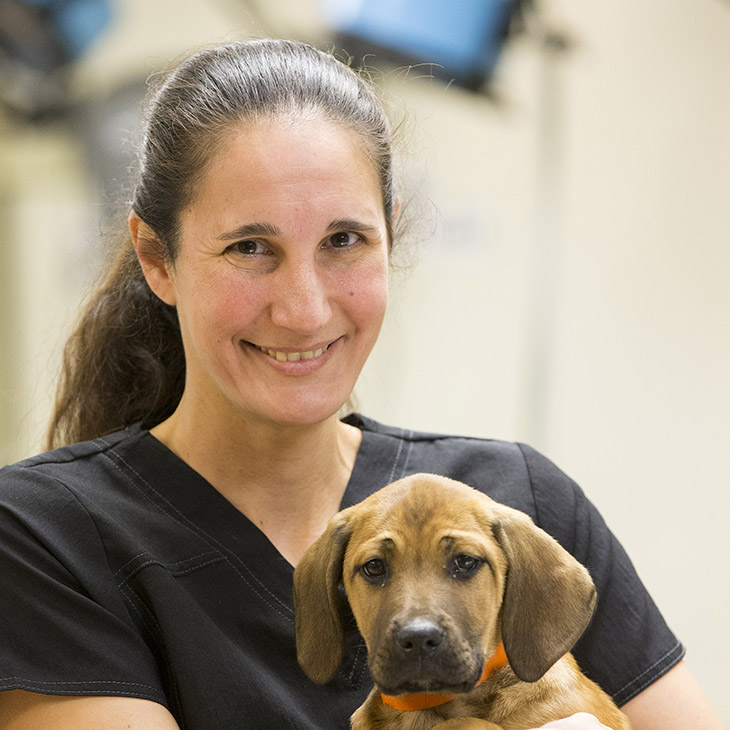
Headed back to work? Prepare your pets
Monday, May 18, 2020
As the state re-opens, Dr. Sarah Peakheart, an assistant clinical professor at Oklahoma State University’s College of Veterinary Medicine, has some advice for pet owners on easing into the routine of returning to work.
Remember that our pets are in this pandemic storm with us. They have been our companions and support during social isolation. While pets have benefited from the extra attention (after they got used to us being in the house ALL.THE.TIME.), they now have yet another schedule disruption to adjust to as we head back to work.
Change can be more stressful for some pets than for others. Puppies, kittens and newly adopted pets may be more prone to experience anxiety-related behavioral issues and illnesses. These pets don’t know there is a different “normal” than you being home all day to talk to them, have snacks, go for walks, have snacks, play games, have snacks and show them off at Zoom meetings. Senior pets and those with pre-existing anxiety disorders (e.g. separation anxiety, feline idiopathic cystitis) will also be less flexible with yet another disruption to their days.
Some signs of stress to watch for include changes in sleeping and/or eating patterns, increased activity or attention seeking, increased irritability, destructive behavior, house soiling or a new or recurring illness.
As we prepare to change back to a new normal, prepare your pets for your sudden absence to alleviate their stress:
- Create their own special safe place: a crate, a room or a gated area. Cats will need a raised hiding/sleeping area, scratching posts and appropriate size (and number) of litter boxes.
- Rotate toys daily (puzzle treat toys are a great attention-getter for your pet).
- Use pheromones to create a calming atmosphere: Adaptil® for dogs and Feliway® for cats.
- Leave pets alone for short periods, slowly increasing the amount of time they spend alone.
- Set and stick to a routine for feeding, walking and bedtime. Set a schedule you can keep when you return to work.
- Spend time with them in the evenings as you would after returning to work.
- Leave the TV or radio on if they have become accustomed to background noise. Try iCalmPet™, Spotify or YouTube for pet-specific music.
- Talk to your veterinarian about nutritional and possibly pharmaceutical support.
As always, if you see any symptoms that worry you, call your veterinarian. During the COVID-19 pandemic, the OSU Veterinary Medical Hospital remains open to treat emergency cases. The hospital utilizes curbside admission and discharge procedures to protect clients and the college community.
STORY BY: Sarah Peakheart, DVM, an assistant clinical professor in the Department of Veterinary Clinical Sciences at the college’s Veterinary Medical Hospital.
